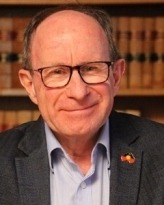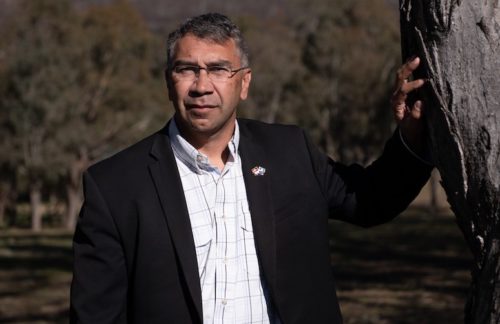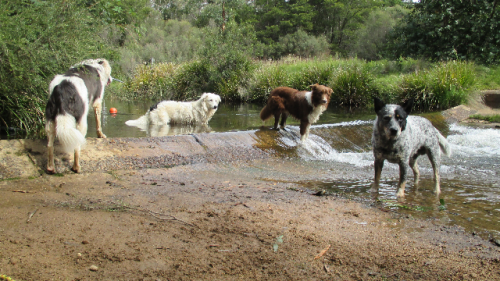FOR too long, successive ACT governments have failed the Aboriginal peoples of this region, but a new discussion paper, published by The Australian Institute today (March 23), reveals that ignoring Canberra’s past is no longer an option.

The discussion paper, titled “Unfinished Business: Truth-telling about Aboriginal land rights and native title in the ACT”, highlights a gaping void in the truth about the ACT’s past that needs to be addressed.
Its author Dr Ed Wensing, an honorary fellow at ANU’s Centre for Aboriginal Economic Policy Research, has worked on native title in every jurisdiction in Australia, and believes the ACT needs to commence treaty discussions to resolve matters of sovereignty and self-determination, including over land rights and native title.
Dr Wensing turned his focus to land rights matters in the ACT about 18 months ago and said he discovered that these matters have been neglected by governments for too long.
But, instead of swinging a bat at the government, Dr Wensing said he wanted to come out and say: “This is the predicament we’re in, how can we go forward from here?”
“The most important step is for ACT government to fund NTSCORP, the native title service provider for the ACT and NSW, to assist the local families with preparing native title claim or claims,” said Dr Wensing, who estimates it will cost about $1.5 million to start, and believes there are about 17 families claiming connections to the ACT.
“Government has an obligation to provide sufficient legal aid to enable NTSCORP to do its job. And it might take NTSCORP two or three years before it can finally be confident of submitting a native title claim or claims that will provide a basis from which to proceed to a resolution of these matters.
“Once those claims are lodged with the Federal Court, then the ACT government can open the door to discussions to resolving the native title matters.”
But the preparation of native title claims(s) can’t be put off any longer, Dr Wensing said.
“Particularly because the Native Title Act has been amended. The new section 47c has been introduced which enables parties to agree on disregarding prior extinguishment in national parks,” he said.
“So if you’re talking about the future management and ownership of Namadgi National Park, you can’t sign any agreement any more without resolving the native title matters, because to do so would render the ACT liable to compensation under the constitution.”
In the discussion paper, Dr Wensing suggested three options for resolving the “unfinished business” of Aboriginal land rights and native title in the ACT.
The options include:
- Establishing a statutory Aboriginal land rights scheme, similar to that in NSW or the NT;
- Developing a comprehensive settlement, which is registered under the “Native Title Act 1993 (Cth)”, similar to the Noongar Native Title Settlement in SW Western Australia;
- Developing an alternative native title settlement scheme, similar to the “Traditional Owner Settlement Act 2010” in Victoria.
“Each of these options are not without their attendant risks and opportunities and will take considerable time, effort and good will by all concerned to achieve amicable and sustainable long-term outcomes,” Dr Wensing said.
“Especially if they involve the extinguishment of native title rights and interests, and the consensus of all native title claimants or holders if required.”
When it comes to progressing these matters, Dr Wensing said there are a number of vital steps that need to be taken, such as acknowledging that Canberra is on the land of the traditional owners, acknowledging that the land was taken without their free, prior and informed consent, without a treaty, and acknowledging that traditional custodians have never been compensated for their losses.
He said there needs to be an established “Truth and Healing Commission” under the Inquiries Act 1991 (ACT) to investigate both historical and ongoing injustices against the Aboriginal peoples of the ACT.
And he pointed to the failed Namadgi National Park Agreement, saying that the ACT government needs to withdraw restrictive clauses within the agreement.

The paper echoes calls from Ngambri elder Paul House, who, earlier this month told “CityNews” he wants the ACT government to support native title claims in the ACT.
“There is a massive void in the truth about the ACT’s past that needs to be addressed,” Mr House said.
“It’s a matter of a public record for the Ngambri people, and it’s also about voice, treaty, truth.”
And for Dr Wensing, the ACT has failed the Aboriginal peoples in this region on truth.
“We cannot erase the past, but we can change the future,” he said.
“We can, and should do better, because continuing failure in this space is no longer an option.”
But to see change, Dr Wensing said all political parties in the ACT need to work together.
“Don’t think you can achieve this in one term,” he said.
“You have to have a unified agreement about these matters, about how to proceed, across the three parties because we don’t want elections seeing the whole process change course every time there’s a change in government. That’s not fair to the traditional owners of the ACT. We, the settlers, should be coming to this with a unified position about wanting a just outcome and that has to be negotiated.
“That might take 10 years and if we continue to fight between Labor, Liberal and the Greens about what will go on the table or what shouldn’t be on the table, then forget it. We’re not going to get anywhere.”
In a response to the discussion paper ACT Indigenous Affairs Minister Rachel Stephen-Smith said the government is committed to the principle of self-determination.
“Funding was allocated in the 2020-21 Budget to facilitate conversations about a treaty process, which will no doubt also cover issues of native title,” she said.
Ms Stephen-Smith also acknowledged the recent amendments to the Commonwealth’s Native Title Act, saying they aim to better support the resolution of native title claims and agreement making.
“The ACT government is seeking legal advice on the implications of these amendments in the ACT and will work through this with traditional owners. These amendments present more opportunities to talk to the community about native title and treaty.”
Who can be trusted?
In a world of spin and confusion, there’s never been a more important time to support independent journalism in Canberra.
If you trust our work online and want to enforce the power of independent voices, I invite you to make a small contribution.
Every dollar of support is invested back into our journalism to help keep citynews.com.au strong and free.
Thank you,
Ian Meikle, editor









Leave a Reply